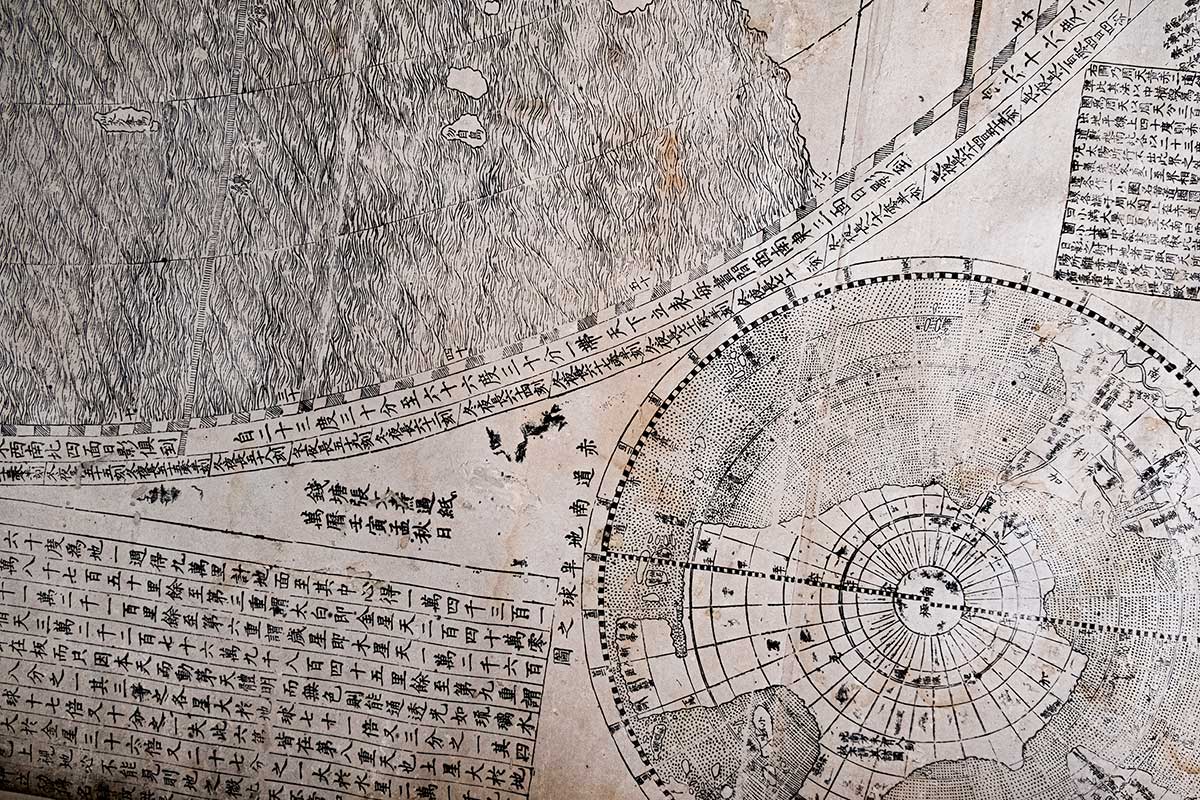Development and grants
As of June 30, 2020, the Libraries had reached 117% of our Driven campaign goal of $18,000,000 by raising $21,085,207. Our goal is to raise an additional $1,600,000 before the campaign ends June 30, 2021. Our thanks go out to the 4,431 donors who have contributed to our Driven campaign. We greatly appreciate your support. Fundraising priorities for the coming fiscal year and beyond include the creation of an endowed chair for our Children’s Literature Research Collections, $395,000 for the Mapping Prejudice project, support for our Student Success initiative, and funding to transform our spaces. Driven is the University of Minnesota’s $4 billion campaign.
Ricci Map
Created for China’s imperial court in 1602, The Map of the Ten Thousand Countries of the Earth is the result of collaboration between Chinese scholars and artisans of the court and European scholars of the Jesuit mission there. Matteo Ricci led the group of Jesuits, so it has come to be called the Ricci Map. Donated in June 2020, this is the largest value gift ever received by the Libraries.
Grants
Libraries projects and programs received $1,162,670 in external funding in 2020.
- The Mapping Prejudice Project, which maps deeds with racial covenants that barred non-whites from occupying properties, received grants from the NEH, the St. Paul Foundation, the City of Minneapolis, and the Andrew Porter Foundation, allowing them to deepen their community engagement and refine their toolkit.
- Digital Arts, Sciences & Humanities received ACLS & NEH grants to improve crowd-sourced transcription with hand-written character recognition and to delve into Mexican American art.
- A grant from the Institute of Museum and Library Studies set up a training program to disseminate systematic review skills among librarians nationally.
- The Tretter Podcast Project was funded by Humanities Innovation and Virginia Humanities.
- The Minnesota Legacy Funds supported digitizing a natural history collection.
- Stanford University and Carnegie Mellon funded a linked data project.
- The ALA supported a Resilient Communities project and a data visualization internship.
Technology staff make it all work
Among the essential work by Data and Technology staff was continued support for the growing Big Ten Academic Alliance Geoportal, UmbraSearch African American History, and the Ojibwe People’s Dictionary. They also improved the Libraries’ search function and enhanced privacy for users.


